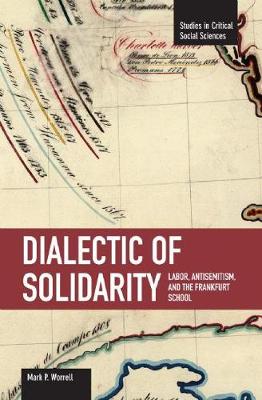Studies in Critical Social Sciences
1 total work
Dialectic Of Solidarity: Labor, Antisemitism, And The Frankfurt School
by Mark Worrall
Published 15 October 2009
During World War II it appeared that American workers had all that was required to defend democracy on the battlefields, and yet on the domestic front the working class was ideologically inconsistent when it came to democracy. Could battles against tyranny be won abroad only to lose the war back home? This was the question the famous Frankfurt School' asked in 1944 when it studied of the American working class. Dialectic of Solidarity draws upon the school's unpublished research reports and represents a unique view of the political imagination of the American worker.'
